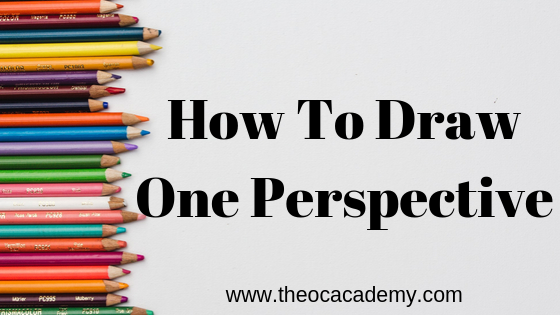What are Key Words
Keywords are the words or phrases that you type into a search engine - like Google - in order to locate relevant information on the internet.
Many sites use search engines in order to locate content within their platform let's take Pinterest for instance. Pinterest is a visual platform that, like most social media sites, shares images for others to see. Because it is a visual platform, many users look to Pinterest for motivation and inspiration. On the other hand, small and large businesses use the visual platform as a way to get their products in front of potential customers.
Here is our Pinterest, feel free to follow! As of today, I get 12.3k page views a day! Insane right? Once I hit a million I am going to do a giveaway. In the comments below let me know what you think I should offer as a prize.
On Pinterest, we go to the search bar and we type in a word or phrase. This word or phrase is our keyword and this is how we communicate what we are in search of the search engine. For the sake of this example, I am going to use the keyword "The OC Academy" and we'll see what comes up.
In this case, Pinterest's Search Engine was able to locate my profile and one of my pens from the keyword "The OC Academy". Now that we understand how keywords work, dig a bit deeper and let's learn more about keywords.
What Will Be Covered In This Article
- Typed of Keyword Matches
- What Other Types of Keywords are out there?
- Intent Targeting Keywords
- Is SEO Dying
- Is SEO Dying
- SEO Copywriting Tips
- Places To Put Your Keyword to Help Your SEO
- Wrap It Up | Create a Keyword List
Types of Keyword Matches
01. Generic Keywords
These are searchable words that cover a wide scope of meanings.
02. Broad Match
Broad Match keywords trigger your ads to show whenever someone searches for similar and relevant variations of a keyword (boat, boating, boating spots, boating rules).
03. Exact Match
Exact Match Keywords prompts the search engines to pull exact and specific search results for exact keywords.
04. Phrase Match
Phrase Match Keywords prompts the search engines to pull exact and specific search results for phrases.
What Other Types of Keywords are out there?
01. Short Tailed
Short-tail keywords are keywords that have three or fewer terms. They are also known as the head keyword. Short-tail keywords are the first keywords that your audience will search for. They hold the highest search volumes, however, they are highly priced keywords and they convert poorly.
02. Long-tail Keyword
Long-tail keywords are keywords that have three or more terms. They are more specific compared to the short-tail keywords.03. Short-Term Fresh Keyword
Short-Term Keywords are viral keywords that are tied to a current event or the latest craze. These keywords often have high search volumes, decent competition, and a high conversion rate. An example of this is fidget spinners.04. Long-Term Evergreen Keyword
Evergreen blog posts are posts who's search volumes remain the same throughout time. Evergreen Niches are specific, have high conversion rates and have content that warrants upstates. Their content is also so relevant that it ages well on the internet.05. Product Defining Keyword
Thes are the keywords that define a product. Product keywords have low search volumes, low competition and are used to stand out from the crowd.06. Customer Defining Keyword
Customer defining keywords are keywords that define a target audience. Customer defining Keywords are low in search volume, low in competition, and specific, however; they have a high conversion rate,07. Geo-Targeting Keyword
Geo-Targeting Keywords are keywords that target a specific geographic location. Geo-Targeting Keywords are low in search volume, low in competitive rate, and specific; however, like the Customer defining Keywords they are high in conversion rates.08. LSI Keyword
Latent Semantic Indexing (LSI) Keywords that are semantically related to your primary keyword. Gone are the days were google would just look for a single keyword on a page, now it looks for keywords throughout the entirety of the page.09. Intent Targeting Keywords
Intent Marketing Keywords refers to keywords that branch out into three categories; Informational, Commerical, and Transactional.
Informational
These keywords provide general information on a subject.
Commercial
Commercial Keywords are detail oriented keywords that describe product and services.
Transactional
Keywords are keywords that encourage your customer to purchase.***--***
Is SEO Dying
I don't believe that SEO is dying, however, I will say that search engines like Google, are looking for more customer-centric websites to rank. So no, SEO is not dying, in fact, it is still vital in terms of your sites ability to be ranked. However, it is reasonable to say that Google is in the business of proving search results for their customers. Because of this, they are interested in finding quality sites that get to the point and answer the searcher's questions.
At the end of the day sites like Google are set on providing their customers with results, which they do quite well, now they are starting to look at the quality of sites content to enhance the user experience. Strategies like this, demonstrate how Google remains the #1 Search engine next to YouTube, which they also own.
01. Incorporate Keywords
01. Title Tag
At the end of the day sites like Google are set on providing their customers with results, which they do quite well, now they are starting to look at the quality of sites content to enhance the user experience. Strategies like this, demonstrate how Google remains the #1 Search engine next to YouTube, which they also own.
SEO Copywriting Tips
01. Incorporate Keywords
02.Know Your Audience
03 Don't Go Overboard With The Keywords
04. Create a Headline Formula
05. Add in Links
06. Write longer content
07. Avoid Dissertations
08. Call to Action
09. Add Images
10. Keep Paragraphs Short
11. Encourage Social Media shares and comments
12. Proof Read
13. Use Latent Semantic Indexing (LSI) Keywords In Subheadings
14. Write an Actual Summary In The Meta Data
Places To Put Your Keyword to Help Your SEO
01. Title Tag
02. Meta Tag
03. Image Captions
04. Image File Names
05. Alt Tags
06. Header Tags
07. Anchor Texts
08. Within the Body of The Article
09. Final Paragraph
10. LSI Key Words
Wrap It Up | Create a Keyword List
Now that you know what keywords are, the types of keywords that exist and a few ideas on where to put them, it is now time to create a keyword list. A keyword List is a list of keywords that you have collected in and for a certain niche. This will become a handy tool later on down the line.












0 Comments